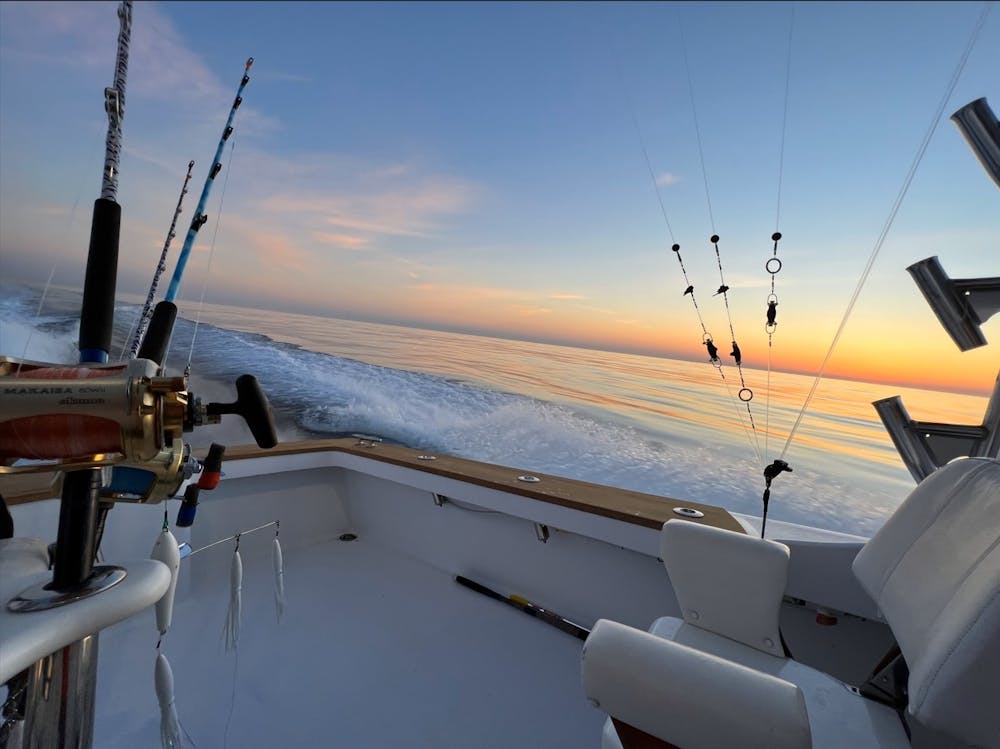“Figure it out,” bellowed the captain. I had just looked to him for direction — the lines of two rods, one with a 50-60 pound yellowfin tuna hooked on the other end, had tangled together — and I was totally unsure of how to get them untangled. Once again, I found myself lost in the chaos and uncertainty of my environment, left to figure things out on my own.
I was living my childhood dream while working as a mate on a sportfishing boat out of Ocean City, M.D. during the summers after my second and third years at the University. The situation that I’ve described above, though, was by no means novel — the learning environment onboard was old school.
The captain’s explanations as to why we would reel a fish in a certain way or why we cut bait into four pieces and not three were only given in the form of demeaning scoldings. If I ever had any complaints — I did, but hardly ever had the audacity to voice them — I knew I would just be directed to the sign onboard that read “The beatings will continue until morale improves.”
There was — luckily — another, much more experienced mate on the boat as well, and to him, I owe more than words could possibly convey. However, he was not there to guide me through every step of the way. So, when disorder erupted on deck, the captain would repeatedly yell “figure it out,” as I ran in circles fearing for my life trying to “figure it out.” This was not an effective pedagogical strategy, to say the least.
Fishing can be extremely chaotic when the fish are biting — multiple lines violently rip out of their holding clips, and their corresponding rods bend over while the line rips off of them. People start yelling, lines get tangled and all while the boat pitches and rolls, to the dismay of our queasy stomachs.
So in the heat of the moment, yelling “figure it out,” was not the most efficient way to teach me, and I struggled to understand through the chaos out on deck and accomplish my duties. I felt like it took me longer to learn skills. I grew frustrated with my slow progress, and even though I had been dreaming of this opportunity since I was just a little kid, I could not help but to feel disappointed in myself as a result. It wasn’t until one crucial realization lit a spark inside me and helped me thrive instead of drown.
While I am almost certain my captain was by no means intending to instill in me a valuable life lesson with his intolerable teaching method, he still did. He made me realize that figuring things out — whether it is how to rig a new bait, how to study for an exam or what career decision to make next — is hard. Now, I know you are probably thinking, “well, of course it is,” but that is exactly the point I am trying to get across.
Consider how we all take it as a given that this upcoming challenge in our life, whether it be a midterm or an annual review at your job, is going to be difficult. My time as charter fishing mate, though, showed me that the mental act of actually acknowledging that fact and truly accepting it is so critically important. In doing this, we can begin to push through the mental barrier and anxiety of taking on a difficult task.
For example, when I finally acknowledged that my learning curve as a mate was supposed to be long, I suddenly found myself no longer frustrated with my slow progress. As a result, I grew more patient with myself, started taking responsibility for my own learning and began focusing on finding tangible ways I could improve each day. In essence, I started figuring things out.
This concept of figuring things out is a tool I now carry with me every day. I use it as a problem-solving framework for the challenges that arise in my life and it involves two steps. First, I accept and acknowledge the conditions of a given challenge as they are. Then, I figure out, through researching, seeking advice or experimenting, how I can achieve my goal or overcome an obstacle.
What I love about my approach to “figuring things out,” is that the act of accepting forthcoming hardships calms my initial anxiety of tackling a new challenge. As a result, I feel like I have regained my own agency and can now muster the wherewithal to take on whatever lies ahead. Even when things may feel like they’re spiraling, I still gain a sense of control.
To this end, I am very thankful for my time as a mate. While I have complained of his verbal abuse throughout this column, I owe my captain quite a lot, and I have a deep respect and appreciation for him. That was an experience that I will never take for granted. As a graduating fourth-year, it is time now, however, for me to figure out the rest of my life.







